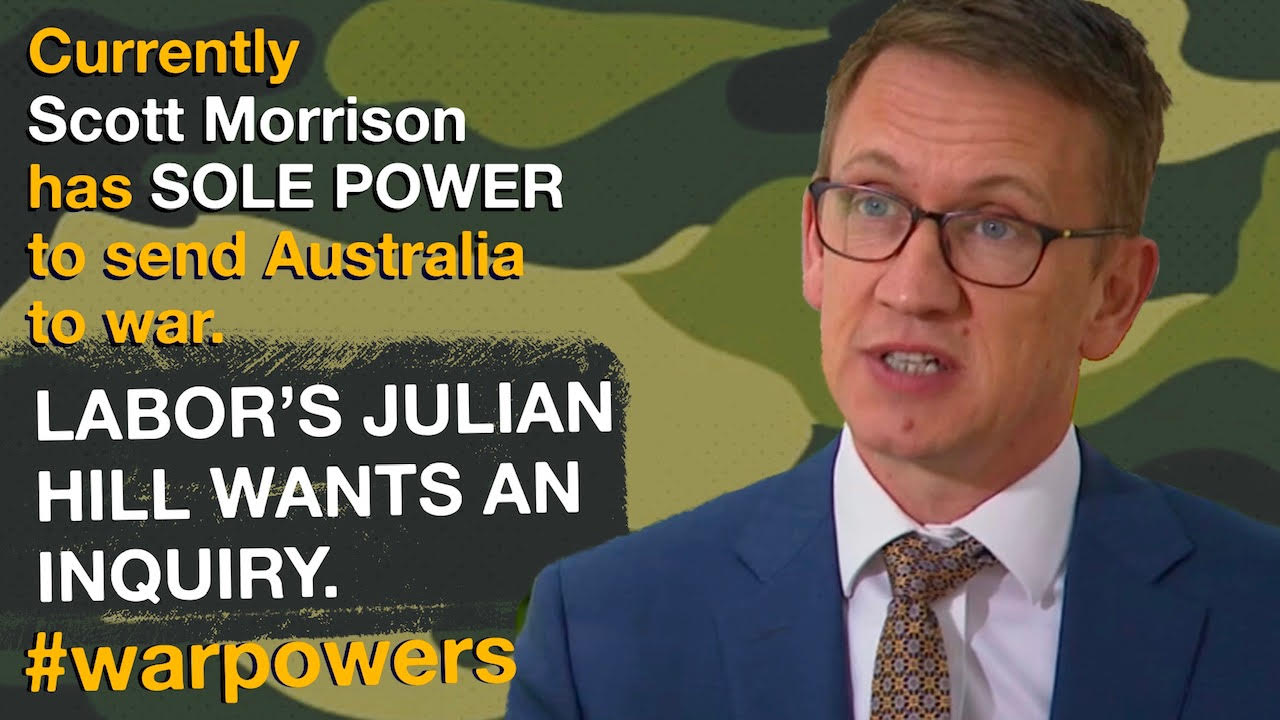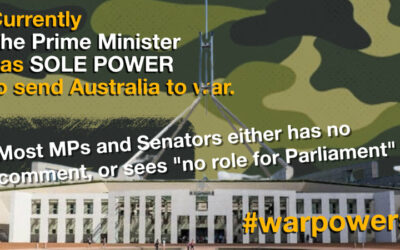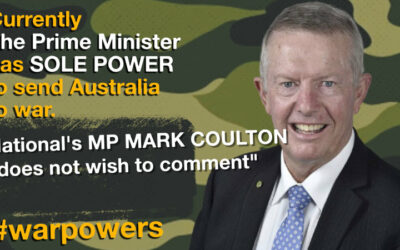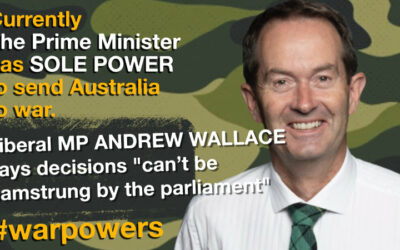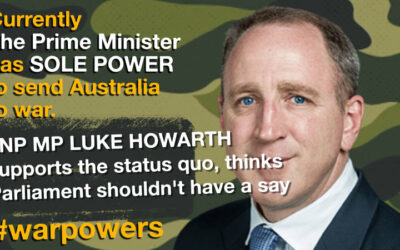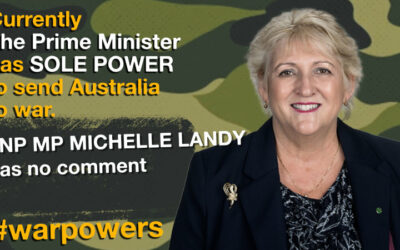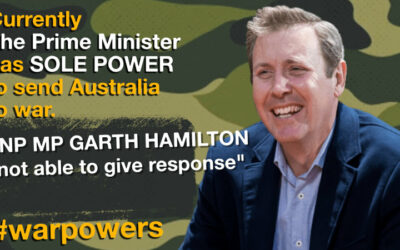Labor’s Julian Hill believes the question of whether Parliament should be consulted before Australian troops are sent into armed conflict abroad should be examined through a parliamentary inquiry.
“At the very least we need to restore accountability to the parliament by way of requiring parliamentary debate and scrutiny of decisions of the executives with regard to deployment of military force.
I’m not however convinced that the responsibilities of executive government should be vetted and made subject to a parliamentary vote. This may risk national security being subject to nutters or popularists on the senate crossbench.
Over time it may also weaken the ability of an opposition that felt compelled to vote in favour of military action, to be able to hold the government to account in the months and years thereafter.
As well as the binary question of ‘are we at war or not’ fundamentally misunderstands the nature of the changing strategic environment where so called grey zone tactics are prevalent. For example, offensive cyber operation, secret submarine missions, SAS activities, drones, missiles and so on, as well as political warfare.”
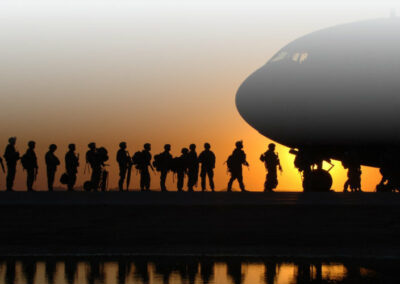
Could this one reform stop Australia from going to war with China?

Reform, say vets who know the horrors of war, yet most politicians say status quo
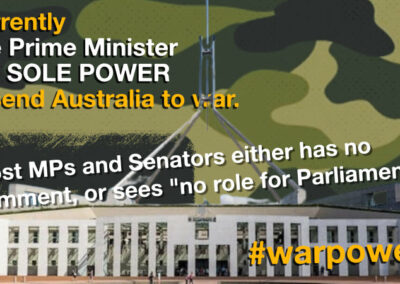
They represent us in parliament, but MPs say declaring war is above their pay grade
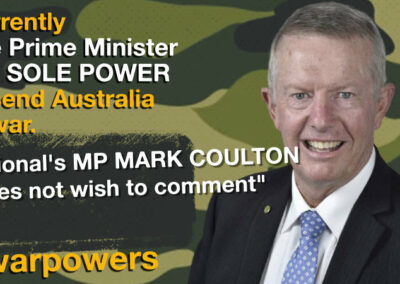
Mark Coulton on war powers reform
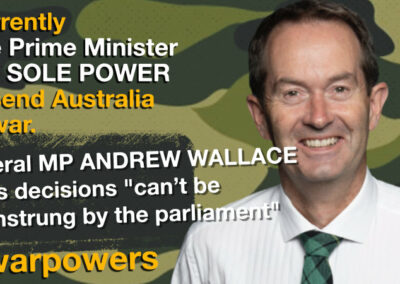
Andrew Wallace on war powers reform
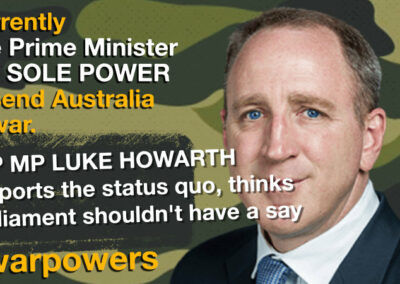
Luke Howarth on war powers reform
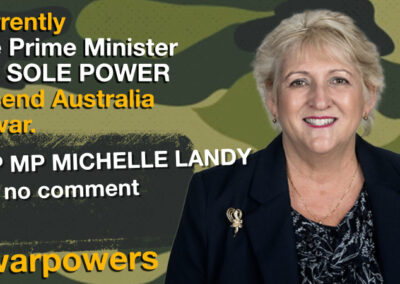
Michelle Landry on war powers reform
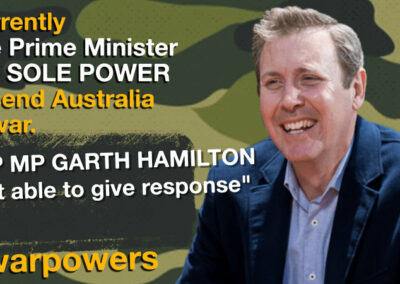
Garth Hamilton on war powers reform
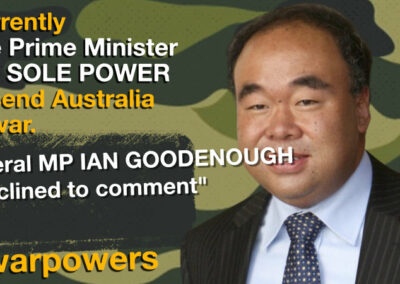
Ian Goodenough on war powers reform
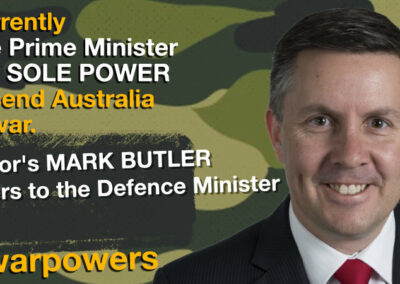
Mark Butler on war powers reform
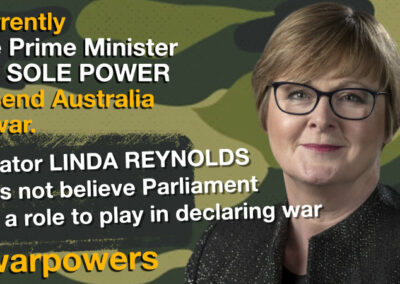
Linda Reynolds on war powers reform
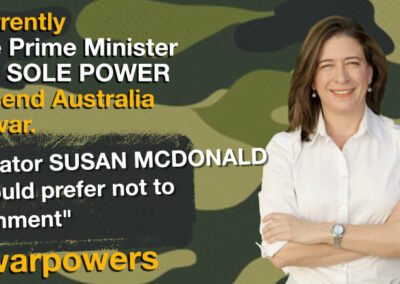
Susan McDonald on war powers reform
Staff writers who have worked on one or more of our special investigative projects include Zacharias Zsumer (War Powers), Stephanie Tran, Tasha May and Luke Stacey.
